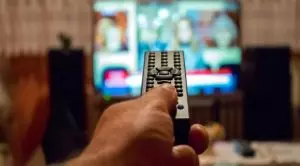 According to a new report presented by the Betting and Gaming Council (BCG), a ban on TV gambling advertising during live sports events has significantly reduced the access of underage individuals to such ads.
According to a new report presented by the Betting and Gaming Council (BCG), a ban on TV gambling advertising during live sports events has significantly reduced the access of underage individuals to such ads.
Experts have shared that the measure known as “whistle-to-whistle” ban has reduced the number of TV-aired gambling ads accessed by children between 4 and 17 years of age by 97%. Under the conditions of the suspension, gambling ads are not allowed to be displayed on TV from five minutes before a live sports event’s beginning until five minutes after its end, if the sporting event is broadcast before the 9:00 PM watershed.
The “whistle-to-whistle” ban was voluntarily introduced by the companies that are members of the newest trade body representing the UK gambling industry except for the National Lottery on August 1st, 2019.
A new study held by Enders Analysis found that a 97% decline was registered in the number of televised gambling ads seen by British children during the whistle-to-whistle period. Apart from that, the total number of gambling ads viewed on TV by underage individuals has been reduced by 70% over live sports programmes’ full duration. According to the new report, the whistle-to-whistle ban in the industry resulted in 1.7 billion fewer views of betting ads over the first five months after it was officially implemented.
Overall Exposure to Gambling Adverts During Live Sports Events Also Declined
 The research found that gambling adverts viewed across four comparative weekends declined by 109 million ads as a result of the ban. Furthermore, a 78% decline was registered in the total exposure to gambling advertising during live sports events before the 9:00 PM watershed.
The research found that gambling adverts viewed across four comparative weekends declined by 109 million ads as a result of the ban. Furthermore, a 78% decline was registered in the total exposure to gambling advertising during live sports events before the 9:00 PM watershed.
According to the newest report, no apparent displacement of gambling advertising to other sports programmes in the evening was found, and the number of gambling ads aired after the watershed declined by 28%.
Since it was established in 2019, the Betting and Gaming Council has unveiled a range of measures aimed at improving the gambling industry standards. The measures include a requirement that no less than 20% of gambling ads aired on TV or radio include messages promoting safer gambling. Furthermore, the BGC insisted on the companies implement new and more effective ID and age verification checks, so-called cooling-off periods on gaming machines, as well as boosting funding for education, treatment, and research.
Apart from that, the UK gambling industry’s trade body is working on a new code of conduct regarding advertising and sponsorship rules that is expected to bring further improvement in the standards of the sector. According to the BGC’s CEO Michael Dugher, the implementation of the whistle-to-whistle ban was a success so far, and it came to prove that gambling operators’ commitment could do more in order to guarantee the effectiveness of the new measures.
The BGC once again called for the UK Government to join forces with the industry in an effort to crack down on companies that operate on the black market, as such operators are not willing to do anything to guarantee the required protection to their customers and do not comply with the country’s gambling legislation on one hand, and with the responsible standards unveiled by the BGC, on the other hand.
- Author


